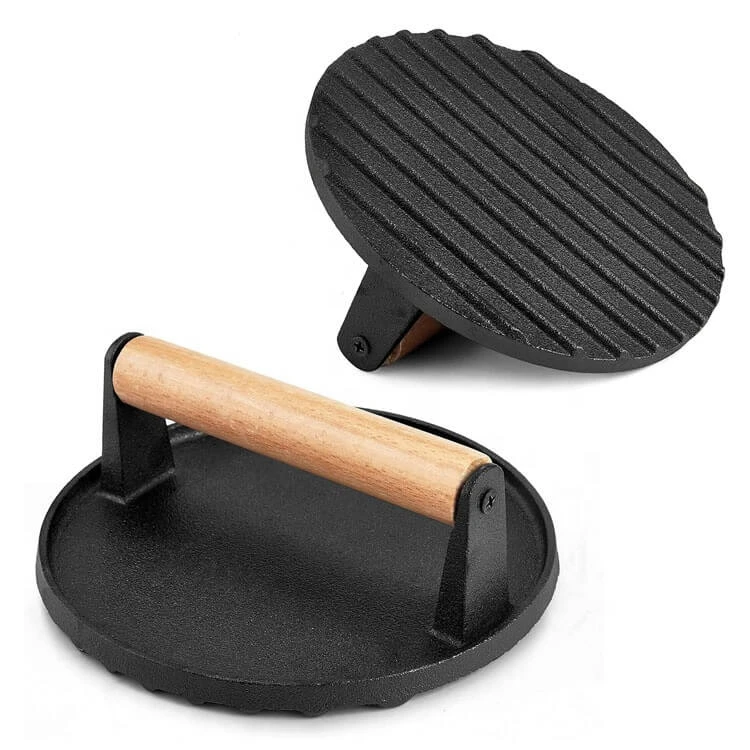
daily cleaning cast iron skillet
Daily Cleaning of Cast Iron Skillets A Comprehensive Guide
Cast iron skillets are cherished tools in many kitchens, celebrated for their durability, heat retention, and ability to develop a natural non-stick surface. However, maintaining this prized cookware requires specific cleaning techniques to ensure it lasts for generations. Here’s a guide on the daily cleaning of cast iron skillets to keep them in top condition.
Why Proper Cleaning is Essential
Unlike stainless steel or non-stick pans, cast iron skillets require more delicate handling. Regular cleaning routines not only help preserve their seasoned surface but also prevent rust and maintain hygiene. Proper care can enhance the skillet's performance, ensuring that each meal cooked is flavorful and cooked to perfection.
Daily Cleaning Steps
1. Let It Cool Down After cooking, allow the skillet to cool down naturally. Plunging a hot skillet into cold water can cause it to warp or crack.
2. Scrape Off Food Residue Once the skillet is cool, use a spatula or a wooden spoon to scrape off any leftover food. For stubborn residues, a non-metal scrubber or a stiff brush will help dislodge food particles without damaging the seasoning.
3. Use Warm Water Rinse the skillet with warm water. Avoid soap, as it can strip the seasoning. If necessary, use a small amount of mild dish soap, but this should be a rare occurrence. Most of the time, warm water and a scrubber will do the trick.
daily cleaning cast iron skillet

4. Avoid Soaking Never soak your skillet in water, as prolonged exposure can lead to rust. Always keep it as dry as possible.
5. Dry Thoroughly After rinsing, dry the skillet immediately with a paper towel or cloth. For extra precaution, place the skillet on low heat for a few minutes to ensure all moisture evaporates.
6. Re-season if Necessary If you notice that your skillet looks dull or dry after washing, it might need a light re-seasoning. Apply a thin layer of vegetable oil or a specialized seasoning oil using a paper towel. Then, heat the skillet on low for about 10-15 minutes. This will help maintain its non-stick surface and prevent rust.
7. Store Properly When storing your cast iron skillet, it's a good idea to place a paper towel between the skillet and its lid (if covered) to absorb any moisture and prevent rust. Always store it in a dry place.
Additional Tips
- Avoid cooking acidic foods, like tomatoes or citrus, in a newly seasoned skillet, as they can strip the seasoning. - If your skillet becomes rusty or loses its seasoning, don’t fret; it can be restored with some elbow grease and the right techniques.
By following these daily cleaning tips, you can ensure that your cast iron skillet remains a reliable companion in the kitchen, providing delicious meals for years to come. Regular maintenance not only enhances its longevity but also enriches the cooking experience, allowing home cooks to achieve that perfect sear or golden crust. Embrace the care of your cast iron skillet—it’s an investment in culinary excellence!
-
Season Cast Iron Perfectly with GPT-4 Turbo TipsNewsAug.01,2025
-
High Quality Cast Iron Cookware - Baixiang County Zhongda MachineryNewsAug.01,2025
-
Premium Cast Iron Pan: Durable & Perfect HeatNewsAug.01,2025
-
High Quality Kitchen Durable Black Round Cast Iron Cookware Pancake Crepe Pan-Baixiang County Zhongda Machinery Manufacturing Co., Ltd.NewsAug.01,2025
-
Cast Iron Cookware - Baixiang County Zhongda Machinery | Nonstick, Heat ResistanceNewsAug.01,2025
-
High Quality Kitchen Durable Black Round Cast Iron Cookware - Baixiang County Zhongda Machinery | Non-Stick, Heat Retention, DurableNewsJul.31,2025


